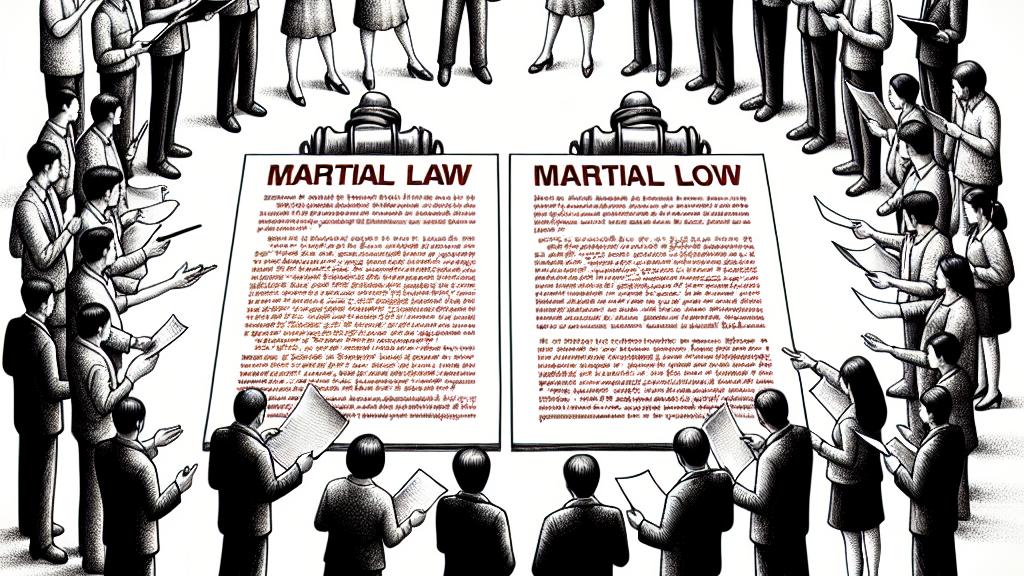Understanding the Controversy Over South Korea's Martial Law Decree
Overview
- A fierce debate ignites over President Yoon's martial law decree and its implications.
- Legal experts voice strong objections to the constitutionality of the decree.
- Echoes of past abuses highlight the critical need for safeguarding democracy.

The Background of the Decree
A significant controversy is unfolding in South Korea surrounding President Yoon Suk Yeol's martial law decree, proclaimed on December 3. Yoon asserts that it was miswritten and intended merely as a precaution against alleged 'anti-state forces.' In contrast, former defense minister Kim Yong-hyun and his legal team defend the decree, arguing it was correctly drafted to prohibit political activities during an emergency. This clash raises an intriguing question: Is this an act of genuine concern for national stability, or a calculated move to sideline political opposition? As the discourse deepens, citizens are left contemplating the delicate balance between security and democratic freedoms.
Legal Challenges and Implications
The crux of the problem lies in the legal ramifications of Yoon's decree. Prosecutors have pointed out that certain clauses are not just problematic—they are outright unconstitutional. For instance, the attempt to ban activities of the National Assembly challenges core constitutional principles designed to protect democratic engagement. This unexpected push against legislative functions is alarming, sparking heated debates that resonate across every layer of South Korean society. With significant historical precedents lacking, the potential for governmental overreach looms large, prompting citizens to question the future integrity of their democratic institutions.
Historical Context and Comparisons
To truly appreciate the weight of this controversy, we must probe into historical contexts that offer sobering lessons. Consider Ferdinand Marcos’s martial law in the Philippines—initially justified as essential for maintaining security and order, it ultimately descended into a dark period of corruption and oppression. Such reflections ignite fears among South Koreans regarding President Yoon's intentions. History teaches us that the declaration of martial law can easily morph into the suppression of political dissent, something that resonates profoundly in the minds of those aware of their nation's past. As public sentiment swells, the need for vigilance against potential abuses of power becomes ever more essential, ensuring that democracy is not just preserved but vigorously defended.

Loading...